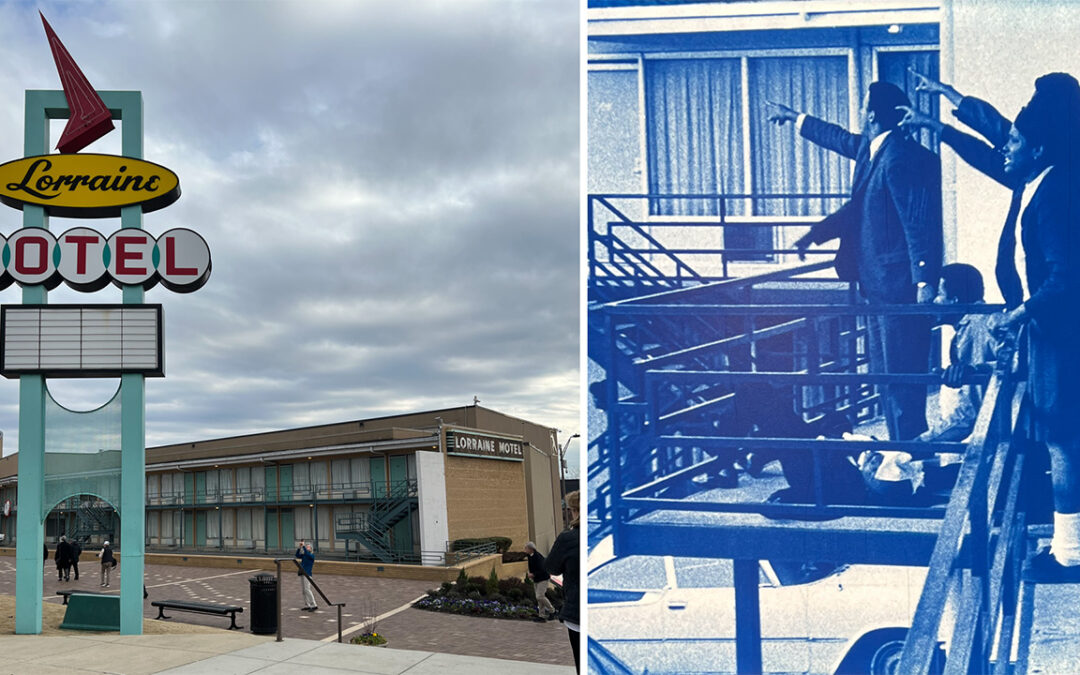
by Robert Bowie, Jr. | Feb 27, 2024 | Featured, People, Personal, Travel
After Ted Williams, Mohammed Ali and Bobby Orr, since I was a boy, I have been looking for heroes. There have been painfully few. The next generations have not, for me, been fertile ground.
I have just returned from a nine-day trip with a group of 15 friends through Mississippi, Arkansas, Alabama, and Tennessee. When I came home, I was shocked to learn of Alexie Navalny’s murder in a Russian prison.
I remembered that after Putin tried to kill him once before, he returned to Russia, only to be imprisoned yet again and ultimately murdered. He risked everything for the love of his country, its people and an integrity that is larger than his life. That is this old man’s kind of hero.
It wasn’t my objective but on the trip, I accidentally found the heroes like Navalny that I have been looking for.
For years, I have wanted to follow the “nonviolent” civil rights movement from the death of Emmett Till in 1955 up to when the Rev. Dr. Martin Luther King, Jr. was killed in Memphis on Aril 4th, 1968.
Yes, I had seen all the pictures, read the books and knew the dates and places as we all have. This movement started when I was in lower school and compounded until it arguably ended with the assassination of Martin Luther King, Jr. when I graduated from high school in 1968.
It was all familiar to me.
But all the histories and research I had done became like reading the script of a play until I walked onto the stage where it had happened. Then I had no escape. It is different when you are surrounded by it. It is different when you become immersed in it.
The Delta blues surrounded us as we passed the crossroads where Robert Johnson is said to have sold his soul to the devil, then parked down the road near Baptist town to walk near where he had been laid to rest.
Much of the Mississippi Delta, our guide at the front of the bus informed us, is owned by eight families.
For hour after hour, the low flat land passes by, with row after row of cotton plants as far as the eye can see on both sides of the road.
Finally, we left the two-lane road from Jackson, Mississippi and traveled down a dirt road to a big house with five or six little cottages next door to it. These are the houses for the families of the tenant farmers who live there surrounded by their work, earning an annual income of around $8,000 a year — that is, before they paid their rent.
On the bus days later, I tried to better understand the famous 1957 picture of young Elizabeth Eckford as she tried to integrate Little Rock Central High School while screaming white people threatening her 67 years ago. Days later, I met her — now in her 80s — as she sat quietly in front of us and answered questions across from where it had all happened.
She said her parents were determined not to back down and they would not talk about it. She said it had taken her almost 40 years to come to grips with what had happened to her in that one day, and for the remainder of the school year, day after day, as she withstood catcalls and being shoved into lockers as she walked the halls.
That little girl in the picture with the sunglasses on, holding her books alone and determined, gives no evidence of the damage that was done to her, which had stayed with her for so long.
It was much the same with the picture I had seen of the cluster of black men in Memphis as they were all turning and pointing in unison as Martin Luther King, Jr. lay at their feet on the balcony of room 306 of the Lorraine Hotel. The hotel has been turned into a much bigger museum, with a plate glass wall preserving the hotel room that these men had left to talk to friends three stories below. It is now forever frozen with the shades all drawn.
I was not ready for 14-year-old Emmett Till’s final journey down from Chicago to visit family in Mississippi to the candy store where he whistled at a white girl. His two assassins had tracked him down three days later and extracted him at gunpoint from his relative’s house to be beaten beyond recognition and dumped in the river. Days later, he was fished out to be buried back home in Chicago in an open casket.
It all rushed at me hours later, when I found myself in the courtroom where the two men were exonerated in 67 minutes by an all-white jury who said they had a ten-minute Coke break to extend the deliberations. I was sitting in the seat of juror number six, right across from the witness stand where Emmett’s mother had testified in tears.
After I opened the news when I got home, Navalny’s murder drove me back to that trip.
I found heroes in many of the locations we visited. In the Mississippi Civil Rights Museum, those heroes were in the records of the hundreds of lynchings, including many who could not be identified.
There are names we all remember, of course. They were committed to their country and to peaceful change despite the daily risk they might be killed. Martin Luther King, Jr., in his “I’ve Been to the Mountaintop” speech, said he could see the promised land, but perhaps he would not be there with them when they entered it. Soon thereafter, he was killed.
Medgar Evers, who was shot from across the street at midnight, had trained his children to run to the bathtub and hide whenever they heard gunshots, because it was the only place they might be safe from a high-powered rifle.
Medgar Evers was killed by a high-powered rifle bullet that went through him, through the front window of his living room, through the wall of his kitchen, and then lodged in the refrigerator.
These people died to advance the cause of freedom. Let’s remember them as we move toward an election that could determine how free we really are.
The night I returned, after I unpacked and turned out the light and set the alarm for an early breakfast, I thought about the people who I had met and the surroundings that had given old history a new life. I went to sleep thinking of those people as little candles where I could warm my hands, little flickering lights burning in the dark.
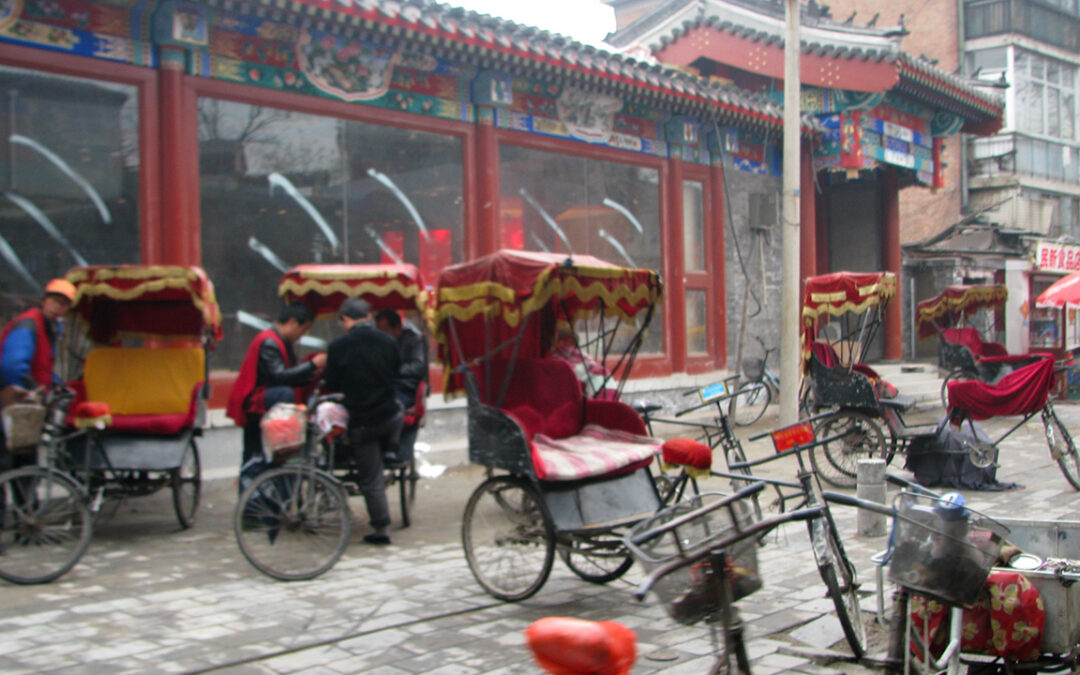
by Robert Bowie, Jr. | Oct 10, 2023 | Featured, Humor, Personal, Travel
You think you’ve been embarrassed? Well, I’ve got you beat.
First, it all happened to me on the other side of the planet so I couldn’t go home, turn off the lights and put my head under the pillow.
It happened in Xi’an, China, in an airport the morning I was scheduled to fly to Chongqing to see a panda sanctuary, then board a boat to go down the Yangtze river through the Three Gorges, and then down to Shanghai.
Second, I was traveling with a small group and the Xi’an Airport was huge, so I had nowhere to hide as my embarrassment went on and on and on…
It all started innocently at dinner the night before we were scheduled to fly out of the Xi’an airport the next morning. Our guide addressed the group and informed us that because our plane left so early the next day we all must have our bags packed and outside of our door at 4:30 so they could be picked up and taken to the airport before we went to breakfast.
Everything had to be packed except the clothes we would be wearing the next day and whatever toiletries we required for that morning.
We were told that those toiletries, once used, had to be carried on our person until we landed at Chongqing airport several hours later at which time we could return them to our suitcases.
After dinner that night, we all went up to our rooms, picked out the essential toiletries, which in my case was toothpaste, toothbrush, shampoo, razor, soap, and hairbrush. I also chose my clothes for the next day, which in my case, were one of my endless pairs of khaki pants, a blue long sleeve business shirt, underwear, sox and shoes.
All the rest was packed in the suitcase, which I put outside the door right before I set the alarm and went to bed.
The next morning when my alarm went off, before I showered and shaved, I peeked out the door. My suitcase was gone and on its way to the airport. I looked at the clock and measured the short time I had to get to breakfast.
After my shower, I bundled up my toiletries, put on my blue business shirt and started to pull up my khaki pants, but couldn’t understand why I couldn’t get them on until I realized that the only pair of pants I had to wear were actually those I had mistakenly packed, which unfortunately belonged to my teenage son.
My son has a 32-inch waist. I do not.
I was running out of time. I had to get to breakfast.
I grabbed both sides of the pants so that my fingers gripped the pockets and I hoisted as hard as I could. No progress.
Next, I lay on my back on the bed with my feet extended in the air and bounced on the bed to get maximum leverage, kicked my feet into the air and yanked with all my strength. No progress.
The top of the pants made it to maybe slightly above my crotch. I’m pretty certain I did not get the pants high enough to halfway cover my back end. Nothing.
Next, I tried straddling a chair and forcefully rode my pants like a cowboy rides a horse in order to force the crotch into submission. I then tried jumping up and down to get maximum thrust, lift and torque. Nothing. This was not good!
I had to get to breakfast but I couldn’t leave the room. This was not good at all!
I reassessed my situation.
I still had to put on my shoes and socks. I would have to roll up the bottom of the pants so that I wouldn’t trip over them.
I was able to walk, but only if I could hold the top of my pants up as high as possible, and walk with my knees banging together every time I took a step.
I searched the room for any possible help. I was fortunate to find yesterday’s Chinese newspaper — bright with color — to cover my crotch.
It was a very long and slow elevator ride for every inch of the decent down maybe three floors. I noticed that the Chinese people in Xi’an, at least in this elevator on this particular morning, tended to be very quiet as they tried to find someplace else to look other than at my crotch.
My group at breakfast was less forgiving. They had to stop eating because they couldn’t stop laughing.
Our guide tried to be helpful and encouraged me to wander the airport to find a clothing store, apparently in the hope that I could learn Mandarin instantly and acquire a pair of pants that was twice the size that any self-respecting member of the culture would never wear.
The guide was just trying to be helpful I know, but didn’t seem to understand that I was really, at this point, no longer interested in clothing. I was no longer hoping to fit into the culture.
I was hoping to vanish from the face of the earth.
Everyone in the airport seemed to be walking by and rubbernecking in order to catch sight of whatever everyone else was laughing at.
I was completely hunched over, gripping my newspaper and pants, with my pant legs rolled up above my ankles and, just to add to my unlikely assimilation into the culture, I was wearing my disposable razor, shaving cream, toothbrush, toothpaste and hairbrush bundled up into a boutonniere blooming from my shirt pocket to add to my look.
The Chinese newspaper was fast becoming my most valuable asset since, as it turned out, my seat on the plane was between two meticulously dressed, very frightened Chinese businessmen who apparently feared any eye contact with me, their fellow traveler, for fear that it might prompt me to flash them.
In times like this I try to focus on making my situation into a positive learning experience.
After thinking about my situation for a little while, I concluded there wasn’t a lot to learn so, in the alternative, I thought it might be helpful to try to imagine what could be worse than what was happening to me at this exact moment.
I no longer wonder what it must feel like to wear a miniskirt if you are knock kneed, but that wasn’t bad enough, so I tried to imagine what it was like to wear a miniskirt, knock kneed with high heels.
I made sure that I would be the last person to leave the plane when we landed. in order to give the baggage handlers extra time so when I went to pick up my bag it would be there.
I hid in the airport men’s room for a while. I was afraid I had permanently injured my lower intestines. I was sure I had bruising. I couldn’t really lift or lower my pants now.
Eventually, I built up all my courage and raced through the teeming airport hunched over, with one hand holding the top of my pants and the other gripping my newspaper.
I swooped down on my bag and hauled it into the men’s room, found a stall, opened the suitcase, liberated myself of my son’s pants, and instantly threw them away for no good reason other than I needed to purge them.
A few months ago, I went on a trip with some of that same group that had gone on the China trip. When my story came up, I refused to relive the experience, so they went right ahead and told it anyway. They kept on embellishing the story at my expense.
The trip to China was 10 years ago, and the listeners could not stop laughing. Apparently, it gets better and better.
One person, who I am not sure was even on the China trip, claimed to have seen it all from the back and referred to it as “the morning the moon rose over the Yangtze!”
I must now live in infamy forever.
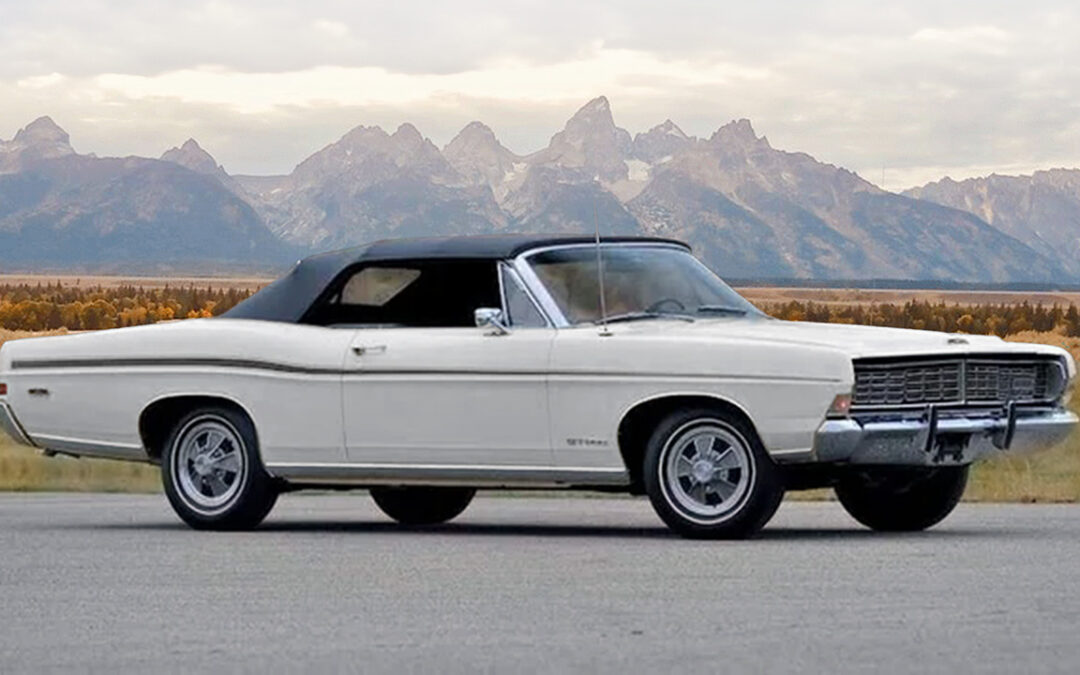
by Robert Bowie, Jr. | Jul 25, 2023 | Featured, People, Personal, Travel
Years ago, I met a boy who never once told me the truth but had the heart of a saint.
Back in August 1968, outside of Cheyenne, Wyoming, I was hitchhiking east when a state trooper pulled up next to me. He told me that he was going down the highway for 15 minutes, then turning around, and if I wasn’t gone by the time he came back he was going to lock me up in Cheyenne “until I got a court date.“
This was serious.
As the officer’s taillights disappeared down Interstate 80, I turned around to face the empty road and stuck out my thumb.
I needed a miracle.
As the first car approached, I knelt by the side of the roadway with my hands pressed together simulating prayer.
That car, an old white Ford convertible, was driven by a boy who appeared to be in his mid-20s. He wore a huge cowboy hat, and rhinestones from his shirt collar to his new boots. The boy pulled over and waved for me to get in.
As I thanked him and started to explain my predicament, he laughed and waved off any further conversation. He told me not to worry because he would be driving all night to see his father in Fort Dodge, Iowa.
First car? This guy? It was a miracle… but it gets better.
Next, he asked me if I was hungry. I laughed and nodded yes, and he reached under his seat to hand me a can of peaches, a can opener, and a plastic fork.
He was clearly showing off. You could tell by the grand gestures of his performance and his broad grin. He was having fun.
After I finished the peaches and drained the can of its last sweet syrup, I settled into the ride as he started to talk. He told me that he had been a foreman for the last several years at a ranch, and the night before in Reno, he had girls in the front and back seats of this very car because he had won money in the slots.
As we drove deeper into the night he told me that before he had been a cowboy he had been a soldier of fortune, and had parachuted into Nicaragua as an agent for the CIA.
His stories were endless and detailed, full of life and love and compassion for those he had worked with, and for the women he had been fortunate to love, as well as those who had broken his heart but had been kind enough to have loved him back for a while.
He was a natural storyteller and the more we relaxed together and talked, the more I liked him for his joy.
Slightly before dawn, when we turned off the Interstate and headed up toward Fort Dodge, he offered a surprising apology: “My old man never amounted to much. He was a postal worker. He drank himself out of the job but he’s always been there for me. He is sick now. I never knew my mom. She left him, but my father, he always has been there for me.”
As the light brought color into the outskirts of Fort Dodge, we turned onto a street of freestanding houses in an empty neighborhood with untended lawns, litter on the streets, and an occasional abandoned car.
The door to his father’s house was open and the window next to the front door was broken. As we entered, I looked to the right. There was a kitchen with a table and two chairs. To the left was a living room with no furniture. Straight ahead was a staircase with a simple railing and some of the slats missing, which led to a second floor. There were crushed beer cans on the floor and heaping ashtrays on the countertop by the sink.
The boy headed upstairs to go wake up his father. Moments later, there was some heavy coughing from upstairs and muffled voices. There was the sound of crying, raised voices, but also laughter.
After several minutes, an old man slowly navigated the steps and stopped to catch his breath when he reach the bottom step.
The old man apologized for the state of the house and immediately went the the old ice box. He got three beers and proceeded to handed them out. Apparently, these were breakfast beers.
Oddly, the whole house seemed to be filled with love and I felt welcome.
As the sun came up, the two were lost in each other’s company, and so I timidly asked if I might be allowed to take a shower since I had been on the road for several days. The old man responded “Sure!” He lit a cigarette and pointed at a wash tub leaning against the kitchen wall. He told me to fill it with hot water from the sink and handed me a big jug of dish washing detergent.
I felt that I could not refuse the kindness. I filled the tub with warm water and detergent, stripped naked, and started to take a bath. The boy and his father paid no attention as they laughed and talked and smoked.
Almost immediately the police arrived, knocked on the unlocked door, then entered. They arrested the boy, put him in handcuffs and shoved him through the door toward the squad car out front. The old man burst into tears. With a beer still in hand, he begged them to release his son as the officers pushed the boy down the walkway and put him in the back seat. The officers never spoke to the pleading old man except to say. ”If you touch me, I will take you in too.”
During the entire arrest the police paid no attention to me at all as I sat naked in a wash tub and tried to surround myself with heaps of bubbles.
When the old man returned from the street, he explained through his tears that a week ago his son had finally been released on parole from a Kansas prison. He had been thrown out of school several years before, and had been convicted as an adult for smoking marijuana near the school yard. He wasn’t a bad kid. Just a free spirit from the wrong side of town.
His father had gotten the old convertible for him and told him he could never outlive his past in Kansas. He told him to go west and “disappear” and never come back again.
The boy had initially agreed, but he had told his father upstairs that he had become homesick for the old man and he was afraid he would die and the boy would never see his father again.
Everything the boy had told me for the last 12 hours riding through the night was a lie, and also a life he would never have the chance to live.
The old man said he and his son had talked every week during the boy’s incarceration and the boy had told him he read all the books and magazines and newspapers he could find in prison.
After the old man had fortified his courage with a few more beers, he marched out the front door and headed toward the police station, which was apparently several miles away.
Alone in the empty house, I dried off with paper towels, slept a little on the living room floor, then in mid afternoon, hitchhiked to a postal delivery hub. I got a ride from a man driving a Mail truck headed east toward Chicago. He told me he’d gotten married the day before, and had been up all night. When the driver started to hallucinate dogs running across the Interstate, I volunteered to drive so he could sleep. We switched seats without stopping.
As dawn arrived, with the sleeping driver by my side, I thought about the boy and wondered why he would lie to me all night about a life he never lived, then take me to his home where his lies surely would be revealed.
Maybe it was to show he had a kind heart and a moral code, despite his life. Maybe he just gave up and didn’t care. As the sun was coming up in the cab of that mail truck, I realized that I had never asked his name, nor had he asked me mine.
Years later, it occurred to me that no matter how hard I might try, I would never be able find that boy again.
I still think of him often. He was one of the kindest people I have ever met. He has appeared in my poems and plays as a reminder that we really are what we do, not what we say.
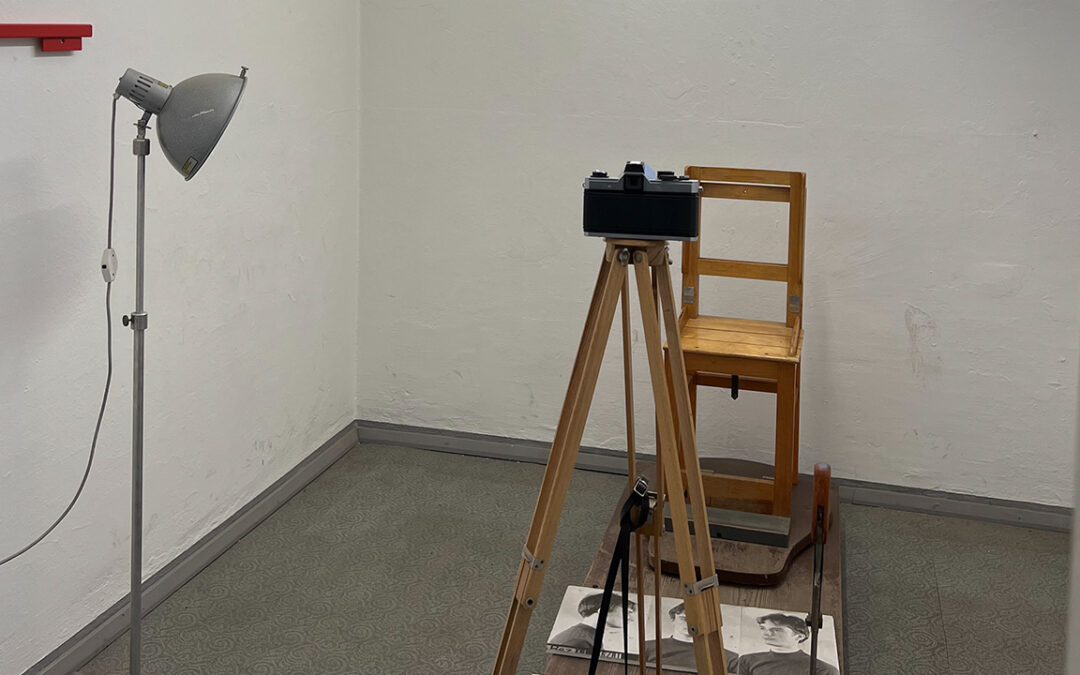
by Robert Bowie, Jr. | Jul 11, 2023 | Featured, Personal, Politics, Travel
Last month I took a trip because I wanted to “feel” what it was like to live in WWII Germany and the Soviet Cold War occupation in Czechoslovakia and Poland.
I already knew the dates, places and times from textbooks, but it’s quite different to experience what it was like to have lived during those times.
Of course the trip would come alive in museums and, unexpectedly, it brought back for me a long lost feeling I had years ago when I was just a young boy. I had gotten lost off shore in Buzzards Bay in a small motorboat that was running out of gas on an outgoing tide in thick predawn fog.
It is odd how we learn through memories and association.
How odd that museums, which were about imprisonment, brought back the feeling of drifting out to sea, creating an odd claustrophobia without barriers other than an endless borderless fog.
The claustrophobia slowly kicked in when I visited Checkpoint Charlie, the famous heavily guarded passthrough in the Berlin Wall, which kept the East Germans imprisoned inside.
It started with a set of pictures of a boy who had scrambled to climb the wall in an effort to live in freedom, but the photos chronicled how he had died riddled with bullets, hanging from barbed razor wire near the top of the wall.
How odd that I could feel claustrophobic under wide-open skies?
A few days later, the claustrophobia increased in one of the East German museums that focused on the Nazi SS and their little gray bread trucks. These had no windows, just a sliding door on one side and three closet-sized cells so small that prisoners could not stand but only sit in a narrow chair, hands by their sides, while they were taken to a concentration camp somewhere outside of Berlin.
A few days later as we traveled toward Prague, we stopped at another prison that was three or four stories high with interrogation cells on the top floor. The inmates who would not answer were showed pictures of their family who would be killed if they continued to resist.
Putin had spent six months in the house across the street when he was in Soviet intelligence, attempting to flip the tortured inmates to become Soviet spies.
The claustrophobia wrapped around me in that silent building when I realized what it must have felt like day and night in there. It was missing the noise of slamming cell doors, the echoing screams and the smell of the single bucket in the corner, which acted as a bathroom in each cramped cell, with three to a single bed and no mattress.
I know now why the feeling I had on this trip was claustrophobic but I thought it was still an odd reaction to the history of the past until I realized I had lived my whole life free in a democracy.
All of a sudden, I felt imprisonment under borderless wide open skies as a psychological imprisonment which became unbearable.
All of a sudden, I could feel the last breath of the boy crucified and bleeding from razor wire on the top of a Berlin Wall as a reaction to my claustrophobia and his death.
Years ago, as I slowly ran out of gas in my little boat, I saw the outline of a cliff as the late morning fog broke. There were connected ladders and a climbing set of stairs. I beached the boat and climbed to the top of the cliff and knocked on the door of a little cottage overlooking the ocean.
A woman with the Sunday newspaper tucked under her arm answered the door. I breathlessly asked, “Where am I?” She looked at me quizzically and answered “Menemsha,” then paused, “Martha’s Vineyard,” and then paused again… “The United States of America.”
I remember feeling happy and alive.
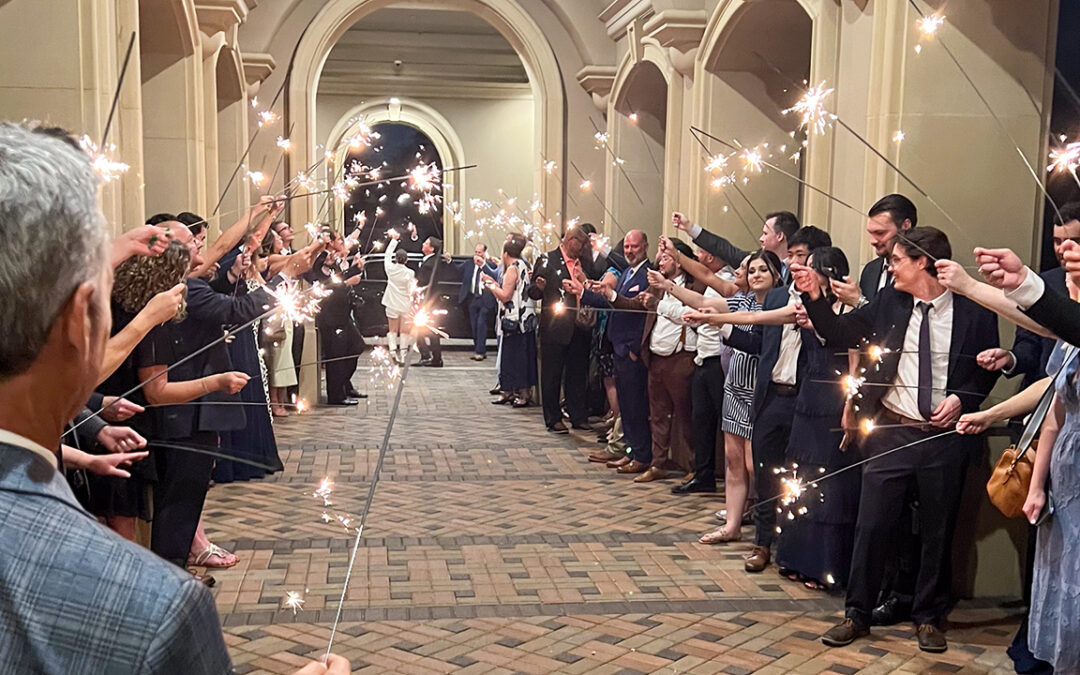
by Robert Bowie, Jr. | Jul 4, 2023 | Featured, Personal, Travel
I have not posted a blog in the last three weeks because I have been to hell and back. I traveled to the darkest place I’ve ever been, and then returned to a place of joy, laughter, love and light.
I went on a trip through World War II in Germany, Czechoslovakia, and Poland, and then returned to witness my son’s wedding and its explosion of joy.
History as dates, places and times is taught and graded, but only the imagination can bring it to life and give it meaning.
In Poland, at the end of our trip, I went to Auschwitz, the concentration camp.
Auschwitz had the most efficient business plan I have ever seen.
I stood at the exact location where the trains emptied, and a guard made an instantaneous decision, pointing either left or right. To the left went children and their mothers (if their mothers could not work) to the gas chambers. To the right went men and women who could be worked to death. The life expectancy of those who could work was pre-calculated to be three months. Excess food was not waisted on them since there was an endless supply of new labor coming off the trains each day. They killed thousands upon thousands of these people each week.
Inside the camp today, there are multiple display cases. Behind the glass of the display cases are piles of clothes, shoes or pots and pans, which had been carried by the executed. In one display case, among the scattered clothing, there was a little pair of red children’s shoes unbuckled. In another, a perfectly intact three-foot-long braid of hair cut from the scalp of a young child. It had a light blue bow still in place at the end.
It seemed impossible to me that the neighborhoods of little country houses outside the camp did not know what was happening in there as the trains rolled in and crematoriums belched smoke that fouled the air. Could they not hear the cries of children as their parents were separated from them or of the families who came to realize that they were not being taken to a safe place outside of Germany as promised, but were living their last moments before they would die.
I was reminded of a time when I was still practicing law, when I was hired to represent a slaughterhouse in a zoning dispute. The slaughterhouse was comprised of two buildings in a suburban neighborhood in Baltimore County.
There was a little house where the business offices were located, and there was a two-story building, which had a ramp that zigzagged up to a door where three cows were lined up head to tail, waiting in line motionless.
The slaughterhouse owners were Christians, and I was introduced to a rabbi who was hired to insure that the process was kosher. I was given the tour of the site in preparation for the trial and I traveled up the ramp that held the three cows and then into the building. I remember doing a double take as I noticed the eyes of the lead cow. I saw that they were wide-eyed and afraid.
Inside the door, I passed the carcasses which had been stripped of their skin and hung swaying on hooks headless as they were carried by a conveyor belt to the efficient butchers, who cut the meat into steaks, fillets, rib roasts, and further down the line, ground beef.
Two days later, I returned from Europe and flew to Houston, where I presided over the rehearsal dinner celebrating my son’s wedding the following day.
The bridesmaids had known each other since high school. Months before, they had celebrated common birthdays together on a weeklong trip to Paris. They were destined to be lifelong friends. My son’s friends had also gone to school or college together and shared comparable deep friendships. The joy and humor of this collective group as they mingled the day before the wedding was palpable and full of laughter and love and friendship on so many levels.
After the wedding ended, the bride and groom traveled into their new life down a runway that was lined on both sides with family and friends holding sparklers.
On the flight home from the wedding, I could not forget the story I was told by our guide at Auschwitz when I asked, “did anyone ever escape?” He replied, “Only the Polish prisoners would occasionally get away because Auschwitz was in a Polish neighborhood where the prisoners could disappear and be exported out of hell by their friends.
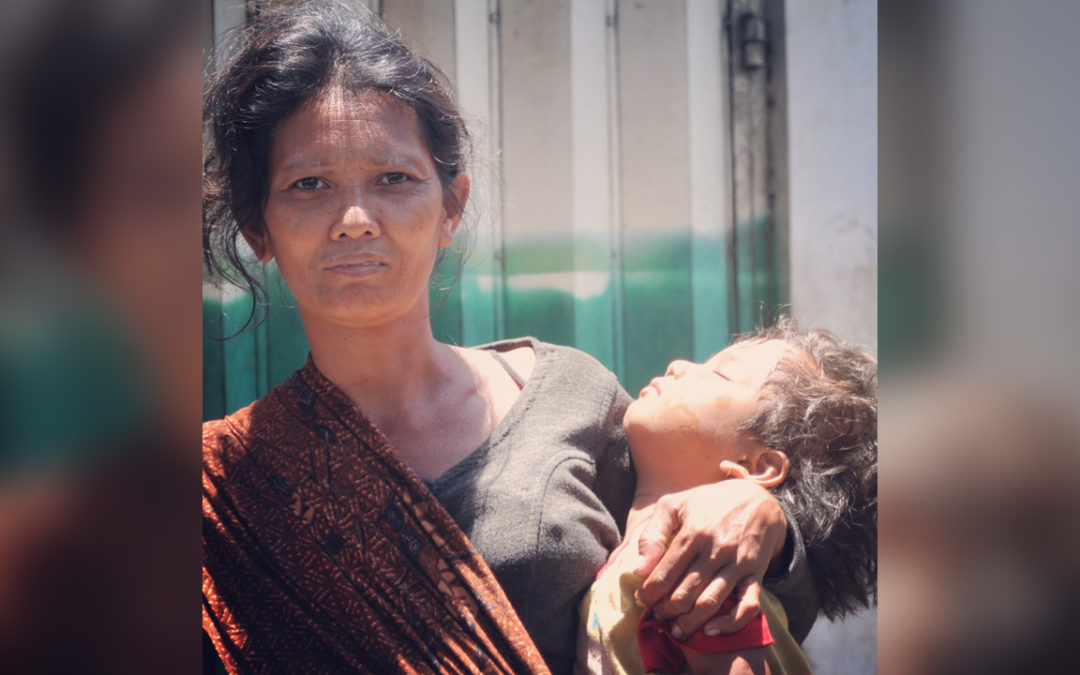
by Robert Bowie, Jr. | Feb 7, 2023 | Featured, Personal, Travel
Twelve or 13 years ago, in Indonesia, I saw a homeless woman resting in the shadows of a side street holding a sick child in her arms. She looked up indifferently at me as I passed through the shadows, but I saw her eyes.
They were part of a portrait of incurable poverty, not drugs or alcohol. I saw no family, no food, no resources and no hope.
It is a moment I can’t forget.
She was so beaten down. I could not tell her age. Her child was so young and quiet. Her eyes seemed vacant and without hope. It was a combination of abject poverty and also a renaissance portrait of Madonna and child.
Without thinking, I surprised myself. I reached into my pocket and handed her what I had. I have no idea how much money I gave to her. It was everything but it was a foreign currency.
I was instantly embarrassed at this unexpected burst of emotions, so I didn’t look back. I just kept walking.
I have come to conclude that no matter where we go, we live in our American culture, its vision of itself, and only caricatures of the outside world which have been baked into me and I take for granted. As Americans, we believe ourselves to be kind, but while it may be our nature to be kind, we protect ourselves from caricatures, like the poverty of strangers when it becomes too much.
When the caricatures fall apart, a different world takes its place.
She was not begging. I just found myself giving her a fistful of money and I kept walking. The money was balled up into my fist when I gave it to her.
I didn’t see her after I gave it to her.
When I turned away, I left the shadows and went into the sunlight and tried to leave it all behind. To forget about what I saw and what I had done. I was surprised to find that she had gotten up and followed me. She’d put her hand on my shoulder. Was she touching me to acknowledge the amount of money I had given her?
Yes I think so, but I think it was something more.
She pointed at my camera as if to say, “thank you and remember me.” She did not smile as I took her picture. She just looked at me with those eyes I can’t forget. I don’t need the photo but I return to it off and on.
I wonder if they are both gone now. It was a while ago. I still have that photograph. It is posted here. I want to remember her and never think of her as a caricatures of poverty.






